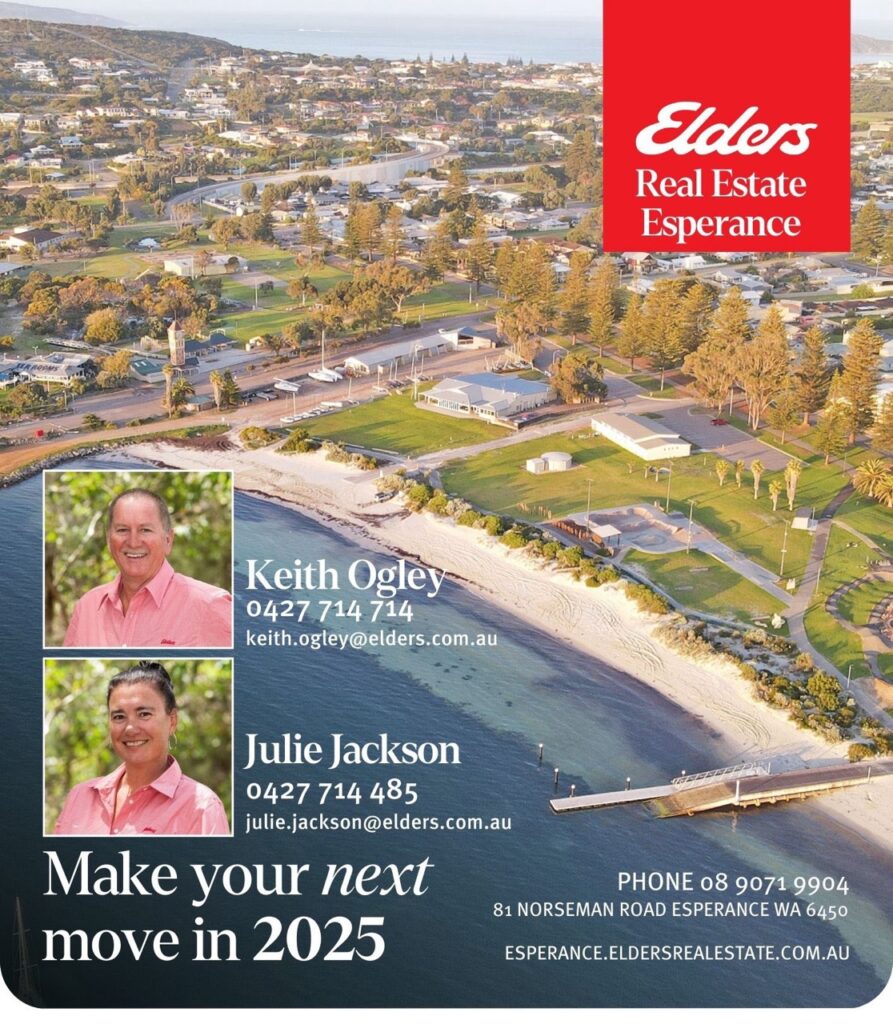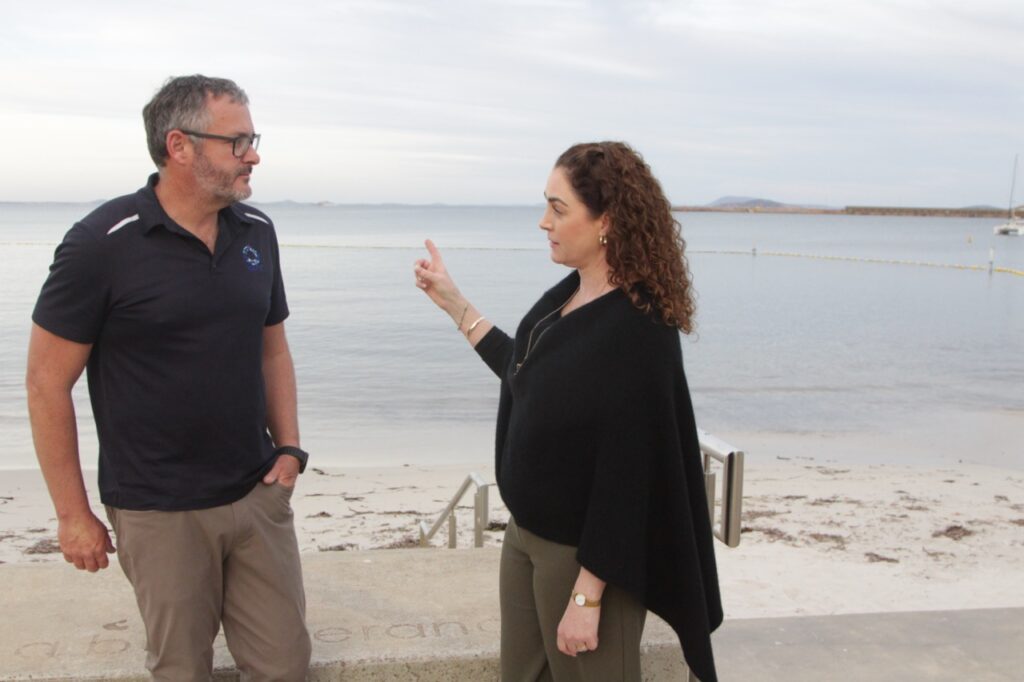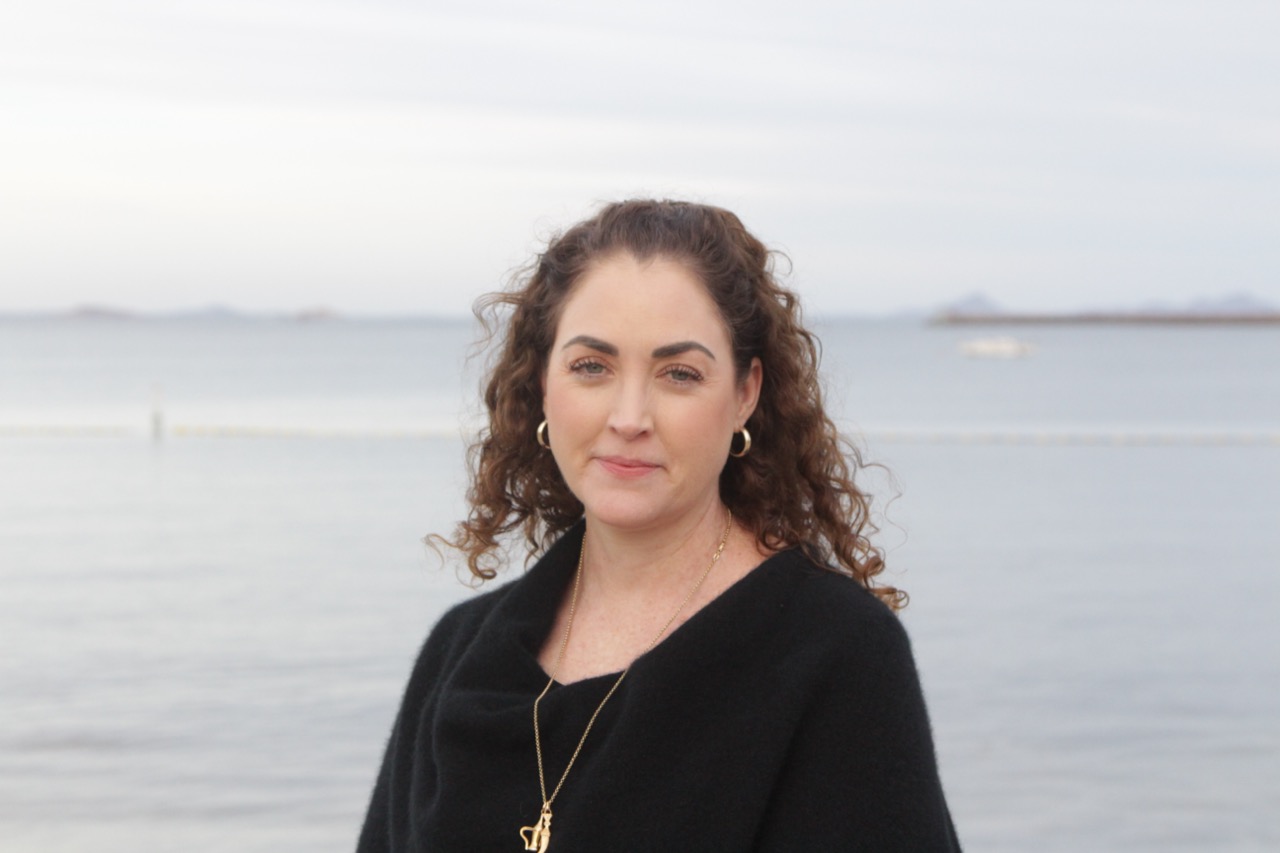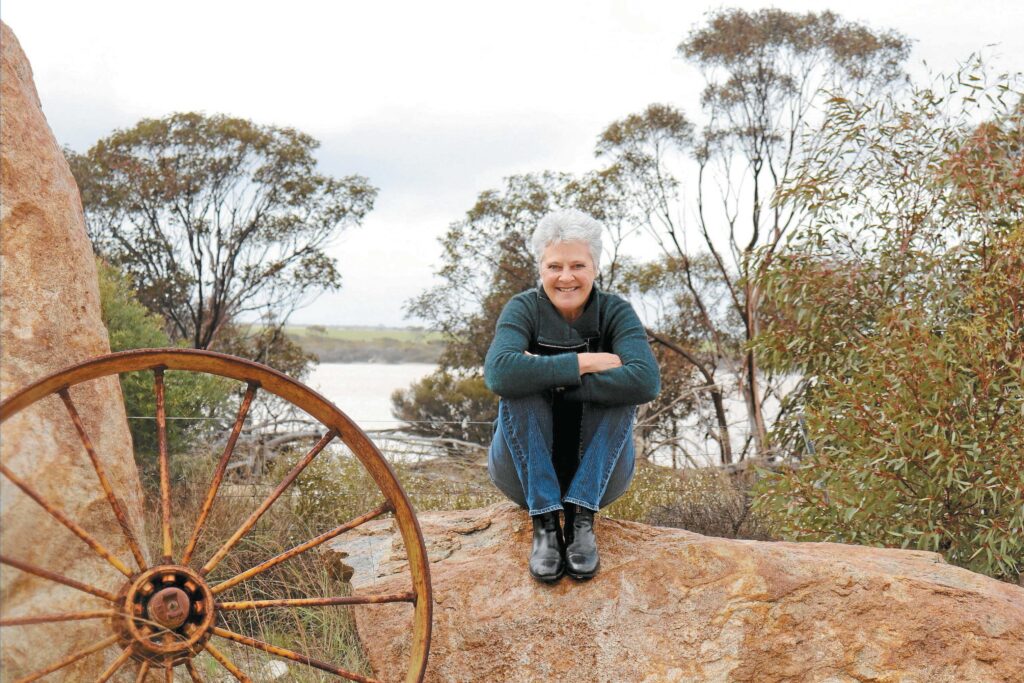WAFIC chief executive Melissa Haslam in Esperance last week. Photo: Geoff Vivian.
With the onset of the South Coast Marine Park, Esperance Professional Fishermen’s Association “cautiously welcomed” a peak fishing industry body’s visit to Esperance last week, to help commercial fishing licence holders seek compensation.
WA Fishing Industry Council chief executive Melissa Haslam said they aimed to take a new approach.
“This time around we are going to try and get industry involved from the ‘get-go’ so that they can have some input into the methodology which determines their compensation,” she said.
“Previously they have just been offered an offer from Government and there’s been little understanding as to how that figure has been arrived at.

“This time we are going to try and get ahead of that process.”
WAFIC’s previous CEO Darryl Hockey was a staunch critic of the Marine Park and the “tawdry public consultation processes” undertaken by the Department of Biodiversity, Conservation and Attractions before its proclamation late last year.
However Ms Haslam said the WA Government had invited WAFIC to help fishing licence holders develop their own compensation mechanism.
“We we are going to be working with the fishers, fishery by fishery, to assess the impact to them and be negotiating back to Government,” she said.
“But essentially our role is to try to get the best outcome we can, a fair transparent process for the commercial fishers.”

Ms Haslam said there about 12 fisheries which would potentially be impacted by this Marine Park to varying degrees, and several licence holders had attended a meeting in Esperance last week.
“Some came in person, some came on line, some were still fishing,” she said.
“The ones we missed today, we will come again for meetings with them individually.
“We have to repeat meetings as needed and people can always pick up the phone and talk to us at WAFIC — this is going to take a number of months.”
Ms Haslam said WAFIC would be publishing “a heap of information” online, including podcasts.

She hoped fishers would listen to these to learn more about previous compensation efforts, what WAFIC was trying to do differently, and the findings of a recent RDC report into our compensation mechanisms.
“That’s come out with a number of recommendations, we’re looking at those as a part of this process,” she said.
Esperance Professional Fishermen’s Association vice president Manue Daniels said EPFA “cautiously welcomed” the announcement of a new process for the South Coast Marine Park.
“After years of confusion, disillusionment and poor communication, even the previous Minister and DPIRD acknowledged that the compensation process to date had failed,” she wrote in a statement.
“That failure has come at great personal cost to fishing families, who have been left in limbo—uncertain about their future, their livelihoods, and their place in the community they serve.
“While we are open to engaging with a renewed process, we are also deeply wary.”
Mrs Daniels said there was a real fear among members they were once again being drawn into a process that would ultimately lead to “nowhere meaningful”.

She said they feared a process “that may listen, but not hear; consult, but not change; ask for input, but make decisions already set in motion”.
“We simply cannot afford another drawn-out consultation that ends with the same outcome and the same heartbreak,” she wrote.
Mrs Daniels said they needed to be clear.
“If the marine park is to proceed, the families who stand to lose everything—generational fishing businesses built on decades of hard work and deep care for the ocean—must be fairly and fully indemnified,” she wrote.
“This is not about a payout. It is about dignity. It’s about acknowledging what’s being taken: a way of life, a source of pride, and a livelihood that feeds not only families, but entire communities.
“It is a deeply sad reality that some of our members are now forced to contemplate leaving an industry they have dedicated their lives to, not because of declining fish stocks or poor management, but because of a policy decision that undervalues the very people who have cared for the South Coast for generations.
“We’ve fished responsibly, sustainably, and with a strong sense of stewardship, yet we now find ourselves being forced to sacrifice our life’s work to fit a political agenda.”




